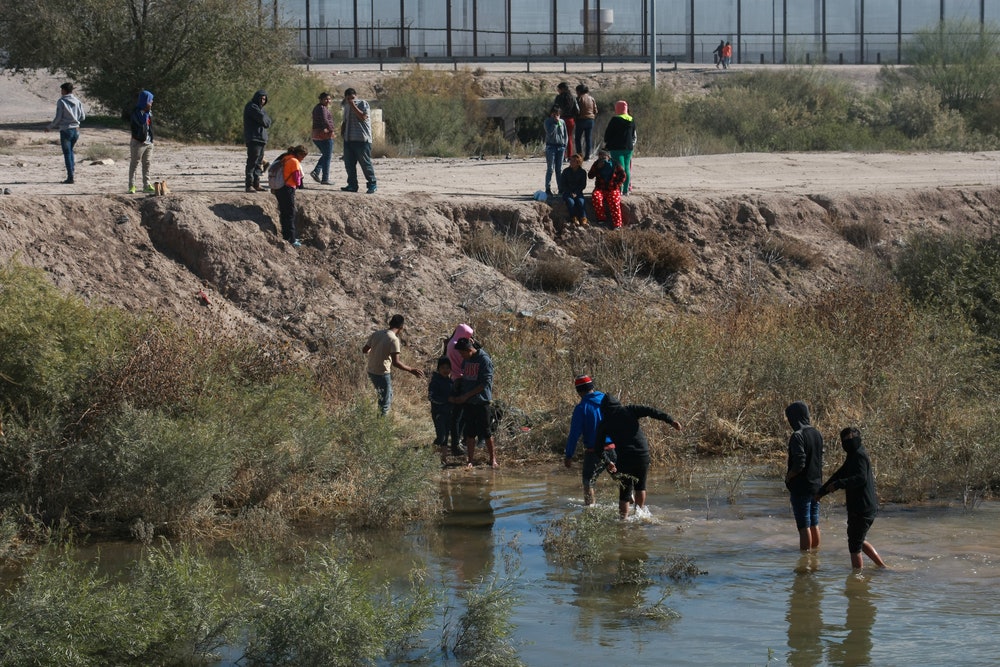Ron Kirk served as U.S. trade representative from 2009-2013. In that job, the Dallas attorney had a first-hand look at the economic issues facing...
Ron Kirk served as U.S. trade representative from 2009-2013. In that job, the Dallas attorney had a first-hand look at the economic issues facing North America. He had a similar look at the economies of Mexico, Canada and the United States while serving as mayor of Dallas from 1995-2001. The Bush Institute asked Kirk, who has returned to Dallas to practice law, to talk about the city’s position in North America.
Dallas sits in an interesting place when you think of North America. It almost is in the geographic epicenter of Mexico, the United States and Canada. What does that mean for a city like this in terms of the flow of human, financial and intellectual capital?
I would say that your question provides the answer. We are uniquely positioned at the epicenter of the largest commercial trade zone in the world. We are able to capitalize upon that by being home to major airlines like Southwest and American, plus having D-FW International Airport and Love Field. For anyone looking to do business in this region, there is no better place than Dallas.
We also benefit because of our familiar ties to Mexico. And Texas has not given voice to the inflammatory rhetoric of the immigration debate. All this creates a strong cultural connection.
Dallas is positioned to be the economic engine for all of North America, not just the Southwest.
But that takes work. How does Dallas make that happen?
I was elected mayor in 1995, which was a year after the signing of the North American Free Trade Agreement. When I got in office, we put in place a defined, deliberate strategy to capitalize on NAFTA. The city sent delegations to Mexico and Canada three times a year to promote Dallas and the region.
So, we need to keep being deliberate. Part of this is having the right infrastructure. That doesn’t mean just roads, bridges and the like. We need strong cultural, political and educational institutions.
That’s why having a University of North Texas in Dallas is important. The southern Dallas campus complements SMU, Paul Quinn College, the University of Texas at Dallas and the University of Texas at Arlington.
Our diversity also helps us as an economic center. We need to capitalize upon that diversity, letting more people know about the flow of people and ideas here, not just goods and services.
And let’s be honest: The world doesn’t understand or care about distinctions between Dallas and Fort Worth. The world sees us as D-FW. The sooner we recognize that, the better off we are in North Texas.
There also is a downside to being a hub or the hub, if you will. For example, illegal drugs can flow in and out of here. So can cartel leaders and gang members. A recent shootout in a prosperous North Texas suburb was related to a cartel figure.
I don’t mean to make light of that, but the nation has struggled for a long time with drugs and drug interdictions. These are issues that affect more than Dallas.
I’d say the drug issue is a high-class problem to have if the tradeoff is Dallas being the principal economic and cultural center of North America. Of course, I am not saying that we should accept the drug flow as part of the status quo. We also need to create a broader and deeper class of educated people in this region. That is the best deterrent to people turning to drug abuse. At the same time, we need to strengthen our border.
Energy is a hot issue these days in Mexico, the U.S. and Canada. As a former U.S. trade representative, what is your view of the integration of energy industries across North America?
We are headed toward energy integration. We need to be smart about how we manage that.
I did have the privilege of representing the U.S. as trade representative. The implication of the U.S. being energy independent is profound. That means a lot regionally and around the world.
Five to 10 years ago, the world would have yawned at the U.S. being energy independent. Now, that’s not the case.
As North America develops an abundance of energy sources, it also will become more economically competitive. Manufacturers, for example, want to be in a place with a stable source of energy.
You mentioned North America being an unparalleled economic zone. What stands in the way of the United States, Mexico and Canada creating greater economic integration?
We have done a lot of that when you look over the 20-year history of NAFTA. There is great interest in products going into new markets in this commercial zone. The U.S. and Mexico alone do more than $530 billion in annual trade with each other. We need to keep building that up through reforms, like allowing for greater labor mobility.
One of the largest beneficiaries is Dallas. Houston benefits, too. We need to continue to build upon this record and promote further integration. That will lead to job growth in the Dallas/Fort Worth metroplex, which is served by rail, freight and air lines. This area can become a gateway to this world. We need to embrace that idea more radically.


























